Top 120 AI Startups (Free List)
Don't miss the next ai unicorn from the UK!

AI is everywhere, and very soon it will be inside everything too!
AI startups are growing like crazy. The UK has always been a good hub for startups, but it’s even more dynamic for AI founders to launch and scale their business.
What is AI?
At its core, Artificial Intelligence (AI) is about creating computer systems that can do things that normally require human intelligence.
This includes tasks like learning from experience, understanding natural language, recognising patterns, and solving problems. AI can be specific and focused on a particular job (Narrow AI), like recognising faces in photos or understanding your voice commands.
The ultimate goal is to develop AI that can handle a wide range of tasks, similar to how humans think and learn (General AI).
120 most active AI startups
Startups (name, funding, founders, investors)
| Date | Startup | Funding | Sector | Round | Contact details | Location | Investor1 | Investor2 | Investor3 | Investor4 | Investor5 | Founder 1 | Founder 2 |
|---|---|---|---|---|---|---|---|---|---|---|---|---|---|
| 18-07-2024 |  Edit Cloud Edit Cloud | £2,000,000 | AI | Seed | London | Simon Green | |||||||
| 17-07-2024 |  Spotlight Pathology Spotlight Pathology | £125,000 | AI | Pre-seed | Dr. Martin Fergie | Prof. Richard Byers | |||||||
| 17-07-2024 |  Briefly Bio Briefly Bio | US$1,200,000 | AI | Seed | London | Dr Katya Putintseva | Harry Rickerby | ||||||
| 16-07-2024 |  Hey Savi Hey Savi | £2,200,000 | AI | Seed | London | Victoria Peppiatt | Angela Vinci | ||||||
| 09-07-2024 |  Canoe Intelligence Canoe Intelligence | US$36,000,000 | AI | Growth | London | Jason Eiswerth | |||||||
| 08-07-2024 |  Gendo Gendo | €1,000,000 | AI | Pre-seed | none | George Proud | Will Jones | ||||||
| 02-07-2024 |  OpenFi OpenFi | £500,000 | AI | Pre-seed | London | Bijan Morvaridi | |||||||
| 02-07-2024 |  Vortex IQ Vortex IQ | £790,000 | AI | Pre-seed | Susant Kumar Patro | ||||||||
| 25-06-2024 |  Digital Iron Digital Iron | £1,600,000 | AI | Seed | Ciaran Gillen | Salina Brown | |||||||
| 25-06-2024 |  BlueFlame AI BlueFlame AI | US$5,000,000 | AI | Growth | London | Raj Bakhru | |||||||
| 24-06-2024 |  Care Hires Care Hires | £1,700,000 | AI | Seed | London | Nizam Bata | Ashley Haveloch-Jones | ||||||
| 20-06-2024 |  Wordsmith Wordsmith | US$5,000,000 | AI | Growth | Edinburgh | Ross McNairn | Volodymyr Giginiak | ||||||
| 18-06-2024 |  SurrealDB SurrealDB | US$20,000,000 | AI | Growth | London | Tobie Morgan Hitchcock | |||||||
| 07-06-2024 |  Unify Unify | US$8,000,000 | AI | Growth | London | Daniel Lenton | |||||||
| 05-06-2024 |  Ittybit Ittybit | £1,500,000 | AI | Seed | Manchester | Paul Williams | |||||||
| 03-06-2024 |  Human Native AI Human Native AI | £2,800,000 | AI | Seed | London | none | |||||||
| 30-05-2024 |  Exactly.ai Exactly.ai | £3,400,000 | AI | Seed | London | Tonia Samsonova | |||||||
| 23-05-2024 |  Nory Nory | US$16,000,000 | AI | Growth | Dublin | Conor Sheridan | |||||||
| 21-05-2024 |  Haz Haz | US$1,400,000 | AI | Seed | London | Ronan Harvey-Kelly | Glenn Keller | ||||||
| 20-05-2024 |  Signapse Signapse | £2 | AI | Pre-seed | London | Sally Chalk | Ben Saunders | ||||||
| 15-05-2024 |  Malted AI Malted AI | £6,000,000 | AI | Growth | Edinburgh | ||||||||
| 08-05-2024 |  Hexis Hexis | £1,600,000 | AI | Seed | London | Dr. David Dunne | |||||||
| 07-05-2024 |  Wayve Wayve | £837,000,000 | AI | Growth | Cambridge | none | |||||||
| 30-04-2024 |  Jigsaw Jigsaw | £12,000,000 | AI | Growth | London | Stephen Scanlan | Travis Leon | ||||||
| 30-04-2024 |  Swap Swap | US$9,000,000 | AI | Growth | London | Sam Atkinson | Zach Bailet | ||||||
| 24-04-2024 |  Four/Four Four/Four | £310,000 | AI | Pre-seed | London | none | |||||||
| 17-04-2024 |  CV Wallet CV Wallet | £400,000 | AI | Pre-seed | London | Richard Collins | Beverly Collins | ||||||
| 17-04-2024 |  Wagestream Wagestream | £17,500,000 | AI | Growth | London | Peter Briffett | |||||||
| 17-04-2024 |  FYLD FYLD | £12,000,000 | AI | Growth | London | Shelley Copsey | |||||||
| 16-04-2024 |  Bridgewise Bridgewise | US$21,000,000 | AI | Growth | London | Gaby Diamant | |||||||
| 11-04-2024 |  Pactio Pactio | US$14,000,000 | AI | Growth | London | ||||||||
| 11-04-2024 |  North AI North AI | £580,000 | AI | Pre-seed | Manchester | Rishi Kapoor | Lucas Cazelli | ||||||
| 11-04-2024 |  Jena Jena | £1,200,000 | AI | Seed | London | Jean-Michel Chalayer | Nabil Freeman | ||||||
| 09-04-2024 |  Avenir Avenir | US$530,000 | AI | Pre-seed | London | Jeremy Bensoussan | |||||||
| 08-04-2024 |  Luminance Luminance | US$40,000,000 | AI | Growth | London | Eleanor Lightbody | |||||||
| 08-04-2024 |  Stanhope AI Stanhope AI | £2,300,000 | AI | Seed | London | Professor Rosalyn Moran | Director Karl Friston | ||||||
| 03-04-2024 |  Aiorde Aiorde | US$1,000,000 | AI | Pre-seed | London | none | |||||||
| 02-04-2024 |  JENA JENA | £1,200,000 | AI | Seed | London | Jean-Michel Chalayer | Nabil Freeman | ||||||
| 28-03-2024 |  ayora ayora | £1,270,000 | AI | Seed | London | none | |||||||
| 28-03-2024 |  Metaview Metaview | US$7,000,000 | AI | Growth | London | Siadhal Magos | Shahriar Tajbakhsh | ||||||
| 27-03-2024 |  Oriole Networks Oriole Networks | £10,000,000 | AI | Growth | London | Professor George Zervas | Alessandro Ottino | ||||||
| 26-03-2024 |  iCustoms.AI (iCustoms) iCustoms.AI (iCustoms) | £1,740,000 | AI | Seed | London | Adnan Zaheer | |||||||
| 25-03-2024 |  My SMASH Media (SMASH) My SMASH Media (SMASH) | AI | London | none | |||||||||
| 20-03-2024 |  Automated Architecture Automated Architecture | £2,600,000 | AI | Seed | London | Mollie Claypool | |||||||
| 18-03-2024 |  Meysey Meysey | £250,000 | AI | Pre-seed | London | Oliver Crofton | Drew Rathbone | ||||||
| 13-03-2024 |  Autonomo Autonomo | £2,000,000 | AI | Seed | London | James Sutherland | |||||||
| 07-03-2024 |  Cogna Cogna | £3,760,000 | AI | Seed | London | Ben Peters | Lars Mennen | ||||||
| 07-03-2024 |  StackOne StackOne | US$3,600,000 | AI | Seed | London | Romain Sestier | Guillaume Lebedel | ||||||
| 06-03-2024 |  Theia Insights Theia Insights | £5,000,000 | AI | Growth | Cambridge | Dr. Ye Tian | |||||||
| 06-03-2024 |  Fluent Fluent | £5,890,000 | AI | Growth | London | none | |||||||
| 05-03-2024 |  Haiper Haiper | £10,860,000 | AI | Growth | London | Dr Yishu Miao | Dr Ziyu Wang | ||||||
| 04-03-2024 |  Un:hurd Music Un:hurd Music | AI | London | Willard Ahdritz | Hazel Savage | ||||||||
| 28-02-2024 |  HACE HACE | £450,000 | AI | Pre-seed | Manchester | none | |||||||
| 16-02-2024 | 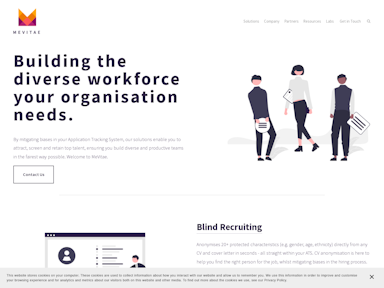 MeVitae MeVitae | £1,400,000 | AI | Seed | Oxford | Riham Satti | Vivek Doraiswamy | ||||||
| 12-02-2024 |  Greyparrot Greyparrot | US$12,800,000 | AI | Growth | London | Mikela Druckman | |||||||
| 06-02-2024 |  AudioStack AudioStack | £2,500,000 | AI | Seed | London | Dr Timo Kunz | Peadar Coyle | ||||||
| 01-02-2024 | 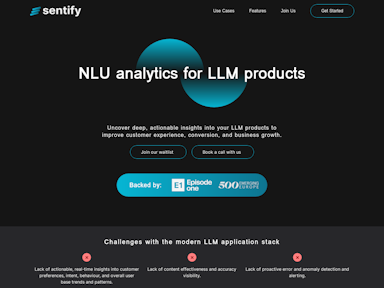 Sentify Sentify | £862,000 | AI | Pre-seed | London | Alex Marantelos | George Pastakas | ||||||
| 31-01-2024 | 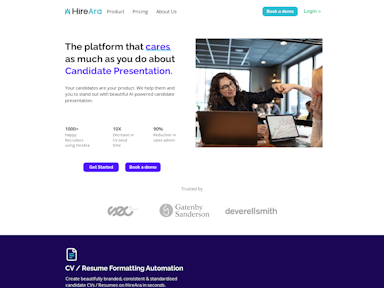 HireAra HireAra | £450,000 | AI | Pre-seed | London | none | |||||||
| 29-01-2024 |  Wondercraft Wondercraft | US$3,000,000 | AI | Seed | London | Dimitris Nikolaou | Youssef Rizk | ||||||
| 25-01-2024 | 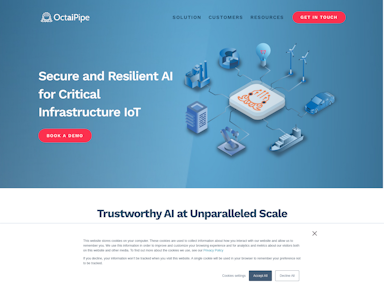 OctaiPipe OctaiPipe | £3,500,000 | AI | Seed | London | Eric Topham | |||||||
| 24-01-2024 |  OpenDialog AI OpenDialog AI | £6,300,000 | AI | Growth | London | none | |||||||
| 24-01-2024 | 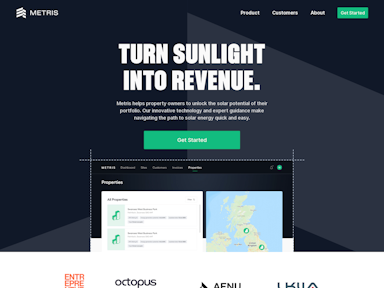 Metris Energy Metris Energy | £2,000,000 | AI | Seed | London | Natasha Jones | William Whatley | ||||||
| 18-01-2024 |  Recraft Recraft | US$12,000,000 | AI | Growth | London | Anna Veronika Dorogush | |||||||
| 17-01-2024 | 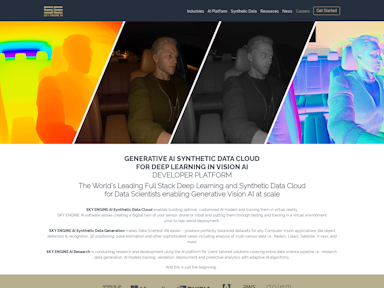 SKY ENGINE AI SKY ENGINE AI | £5,500,000 | AI | Growth | London | none | |||||||
| 04-01-2024 | 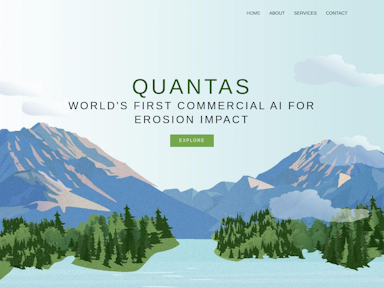 Quantas Quantas | £430,000 | AI | Pre-seed | London | Alex Pourquery | |||||||
| 03-01-2024 | 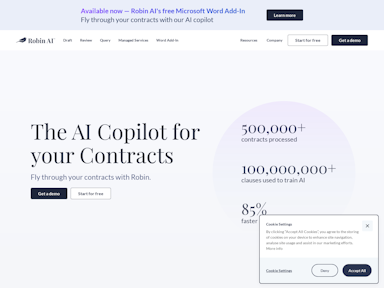 Robin AI Robin AI | US$26,000,000 | AI | Growth | London | Richard Robinson | James Clough | ||||||
| 31-12-2023 |  Quantas Labs Quantas Labs | US$550,000 | AI | Pre-seed | London | Faisal Al-Rajhi | Alex Pourquery | ||||||
| 14-12-2023 | 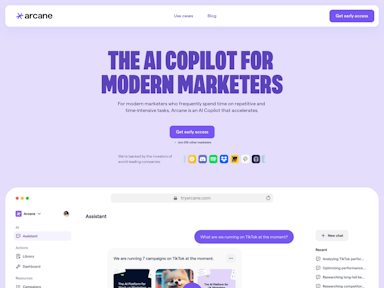 Arcane Arcane | US$5,000,000 | AI | Growth | London | Ben Hacking | Jeremy Frenay | ||||||
| 14-12-2023 | 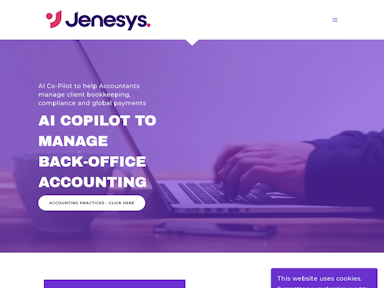 Jenesys AI Jenesys AI | US$1,100,000 | AI | Seed | London | Nicolai Thomson | Tosin Dairo | ||||||
| 07-12-2023 | 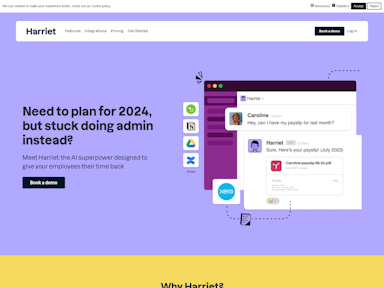 Harriet Harriet | £1,200,000 | AI | Seed | London | none | |||||||
| 01-12-2023 |  Runna Runna | £5,000,000 | AI | Growth | London | Dom Maskell | Ben Parker | ||||||
| 27-11-2023 |  PhysicsX PhysicsX | US$32,000,000 | AI | Growth | London | Robin Tuluie | Jacomo Corbo | ||||||
| 21-11-2023 | 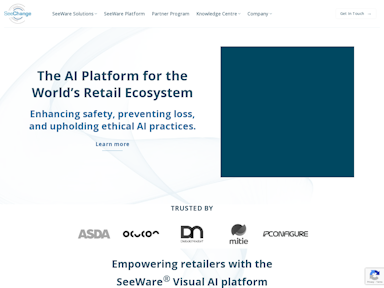 SeeChange SeeChange | £8,000,000 | AI | Growth | Manchester | The founder of SeeChange is Jason Souloglou. | |||||||
| 21-11-2023 |  SeeChange Technologies SeeChange Technologies | £8,000,000 | AI | Growth | Manchester | Jason Souloglou | |||||||
| 15-11-2023 |  Urbanic Urbanic | US$150,000,000 | AI | Growth | London | James Wellwood | |||||||
| 09-11-2023 | 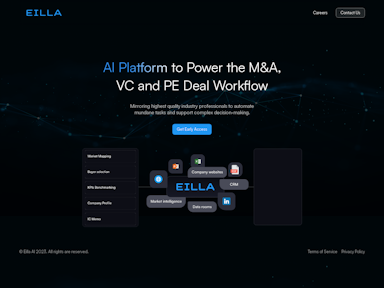 Eilla AI Eilla AI | US$1,500,000 | AI | Seed | London | Petar Petrov | Nikola Lazarov | ||||||
| 02-11-2023 |  Accelex Accelex | US$15,000,000 | AI | Growth | London | none | |||||||
| 31-10-2023 |  Sprout.ai Sprout.ai | £5,400,000 | AI | Growth | London | Roi Amir | |||||||
| 19-10-2023 |  Ai Build Ai Build | £7,000,000 | AI | Growth | Daghan Cam | Michail Desyllas | |||||||
| 12-10-2023 |  TitanML TitanML | US$2,800,000 | AI | Seed | London | Dr. James Dborin | Dr. Fergus Finn | ||||||
| 01-10-2023 |  Prins AI Prins AI | US$100,000,000 | AI | Growth | none | ||||||||
| 28-09-2023 |  Move Ai Move Ai | £8,200,000 | AI | Growth | Tino Millar | ||||||||
| 27-09-2023 |  Machine Discovery Machine Discovery | £4,500,000 | AI | Growth | Oxford | Muhammad Kasim | Brett Larder | ||||||
| 25-09-2023 | 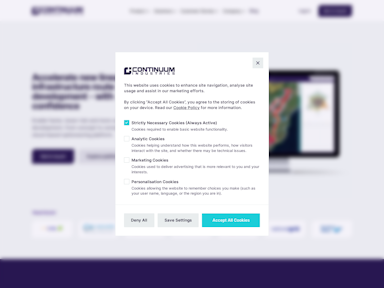 Continuum Industries Continuum Industries | US$10,000,000 | AI | Growth | Edinburgh | none | |||||||
| 14-09-2023 |  Ometria Ometria | £8,000,000 | AI | Growth | London | Ivan Mazour | |||||||
| 14-09-2023 |  Pixis Pixis | US$85,000,000 | AI | Growth | London | Shubham A. Mishra | |||||||
| 12-09-2023 |  Kuano Kuano | £1,800,000 | AI | Seed | Vid Stojevic | David Wright | |||||||
| 11-09-2023 |  Microplate Dx Microplate Dx | £2,500,000 | AI | Seed | Dr. Stuart Hannah | Professor Damion Corrigan | |||||||
| 07-09-2023 |  Martian Lawyers Club Martian Lawyers Club | US$2,200,000 | AI | Seed | Bristol | Kamen Brestnichki | Levi Fussell | ||||||
| 06-09-2023 |  Shop Circle Shop Circle | US$120,000,000 | AI | Growth | London | Luca Cartechini | Gian Maria Gramondi | ||||||
| 05-09-2023 |  Koios Koios | £440,000 | AI | Pre-seed | none | ||||||||
| 05-09-2023 |  ThetaRay ThetaRay | US$57,000,000 | AI | Growth | Peter Reynolds | ||||||||
| 30-08-2023 |  Context.ai Context.ai | US$3,500,000 | AI | Seed | London | Henry Scott-Green | Alex Gamble | ||||||
| 23-08-2023 | 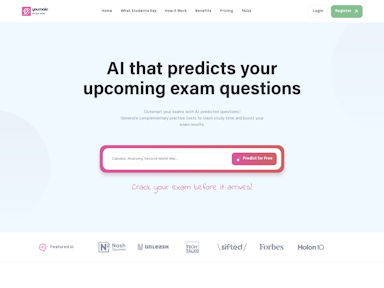 YouMakr YouMakr | £390,000 | AI | Pre-seed | Rami Akily | ||||||||
| 13-08-2023 |  11xAI 11xAI | £1,570,000 | AI | Seed | The founder(s) of 11xAI mentioned in the text are Hasan Sukkar. | ||||||||
| 08-08-2023 | 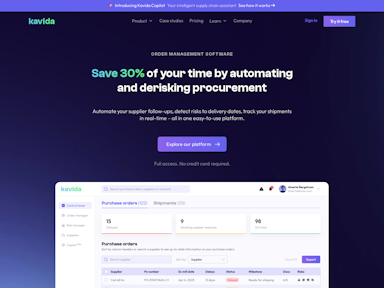 Kavida.ai Kavida.ai | £900,000 | AI | Pre-seed | London | none | |||||||
| 27-07-2023 |  AutogenAI AutogenAI | US$22,300,000 | AI | Growth | London | Sean Williams | Tricia Blatherwick | ||||||
| 23-07-2023 |  Magic Magic | £1,900,000 | AI | Seed | London | Varun Bhanot | |||||||
| 21-07-2023 |  Stylib Stylib | £1,500,000 | AI | Seed | London | Noam Naveh | Fabio Galicia | ||||||
| 20-07-2023 |  Thingtrax Thingtrax | £4,300,000 | AI | Growth | London | Aman Gupta | Imran Shafqat |
New AI startups are being created and raising funds every day.
10 AI sectors ready for disruption
Here is a list of sectors currently being disrupted by AI startups in London and the rest of the UK:
Automation and Efficiency
AI enables automation of repetitive tasks, improving efficiency and productivity across various industries. This includes manufacturing, customer service, data analysis, and more.
Healthcare Advancements
AI is being used in healthcare for tasks such as diagnostics, drug discovery, personalised medicine, and patient care. AI algorithms can analyse medical data, detect patterns, and assist in diagnosing diseases.
Education and Personalized Learning
AI is revolutionising education by providing personalised learning experiences. Adaptive learning platforms use AI to tailor educational content to individual student needs, enhancing understanding and retention.
Financial Services
AI is used in the financial sector for fraud detection, risk assessment, algorithmic trading, and customer service. Chatbots powered by AI help in handling routine queries and transactions.
Entertainment and Content Creation
This is a big one, AI technologies contribute to content creation, such as generating music, art, and even writing articles. Additionally, AI algorithms are used to enhance graphics and special effects in the entertainment industry.
Autonomous Vehicles
AI plays a crucial role in the development of autonomous vehicles. Machine learning algorithms enable vehicles to perceive their environment, make decisions, and navigate without human intervention.
Natural Language Processing (NLP)
AI technologies, particularly NLP, have improved language understanding and generation. This has led to advancements in virtual assistants, chatbots, and language translation services.
E-commerce and Recommendation Systems
AI-driven recommendation engines analyse user behaviour to provide personalised recommendations, enhancing the user experience and increasing sales in e-commerce platforms.
Smart Cities
AI is used in urban planning and management to optimise resources, enhance public safety, and improve overall city functionality. This includes traffic management, waste management, and energy consumption optimization.
Climate Change Solutions
AI is being leveraged to address environmental challenges. It helps in monitoring and managing resources, predicting natural disasters, and optimising energy consumption to reduce environmental impact.
Cybersecurity
AI is used to detect and respond to cybersecurity threats in real-time. Machine learning algorithms analyse patterns to identify unusual activities, helping to prevent and mitigate cyber attacks.